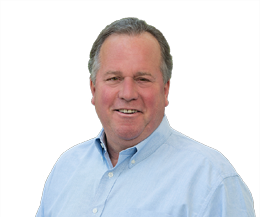New law promises solid prevention and response to wildfires
By Sen. Bill Dodd and Sen. pro Tempore Toni Atkins (Vallejo Times-Herald)
As California enters peak fire season, we take stock of the horrific wildfire disasters that are less than a year old, and of the urgent actions Gov. Newsom and the Legislature have taken to ensure those disasters don’t happen again.
No one can predict the future, and wildfires will always be part of our natural landscape. At the same time, state leaders have taken aggressive steps to address the underlying causes of these fires even as we know we have much more work to do.
The catastrophic wildfires of 2017 and 2018 were the most deadly and destructive in California history, leading to the deaths of 129 people and the destruction of entire communities.
Climate change is, of course, affecting weather patterns and extending the fire season. But there are other factors as well. The five-year statewide drought parched our chaparral, forests and other wildlands, killing more than 100 million trees and making small, rural communities, and the boundaries of larger cities at the wildland and urban centers meet, a kind of dry kindling for the horrific blazes that ensued.
In some cases, the ignition sources for these fires came from the vast network of electrical lines erected by private utilities — such as Pacific Gas & Electric Co. — across our forests and valleys to keep the electricity flowing. In addition to the tragic loss of life, over the past two years the fires sparked by electrical lines caused billions of dollars in property damages and terrible losses to residents, businesses and public agencies.
No elected official supports a bailout of any corporation that behaved irresponsibly and didn’t maintain its power systems and infrastructure.
If we did not act to address this very complex area of law, the economic and environmental costs to the state could be massive. According to an independent energy expert, failing to act means Californians would face rate increases up to 50% in the first year alone. Utility customers could have been on the hook to pay for the wildfires of 2017 and 2018, and victims would have been further disadvantaged in their efforts to recover damages from utilities that were the source of the destruction. Finally, the ability to deliver power to residents and to meet the state’s vital climate goals would be compromised.
Clearly, this was an unacceptable outcome for our colleagues in the Senate.
That is why the Senate immediately went to work when we received the proposal from Gov. Newsom, which would become Assembly Bill 1054. It received strong support from Democrats and Republicans alike and was signed in to law Friday.
AB 1054 requires utilities to invest $5 billion to make their infrastructure safer to prevent future fires. It creates a new independent board to oversee fire safety so that utilities put safety above all else. The law further requires utilities to obtain extensive safety certifications that are reviewed annually. It also establishes a catastrophic wildfire fund to help pay wildfire victims, with first priority for funding coming from the pockets of utility investors, who will pay billions of dollars more into this fund than utility consumers. Only if a safety certification is issued and maintained would a utility be able to participate in a fund to cover the damages from future wildfires.
The measure also requires the California Public Utilities Commission to protect the interests of ratepayers and employees if a utility or part of a utility changes control. Without it, safety, reliability and costs could be negatively affected.
The Senate fought for a number of additional provisions, including stronger utility safety requirements through field audits and annual review. It also took on the corporate culture of utilities by requiring strict new executive compensation requirements, including tying salaries and compensation such as bonuses to safety performance.
The proposal requires massive new shareholder investments with no new charges on ratepayers from what they pay today.
Still, there is more work to do.
When the Legislature reconvenes, we will continue to focus on wildfire prevention. We will pass legislation to ensure fire-proofing of homes, increased defensible space and greater use of onsite clean energy to make sure essential public-service facilities can remain operating even when power lines are turned off to prevent wildfires.

